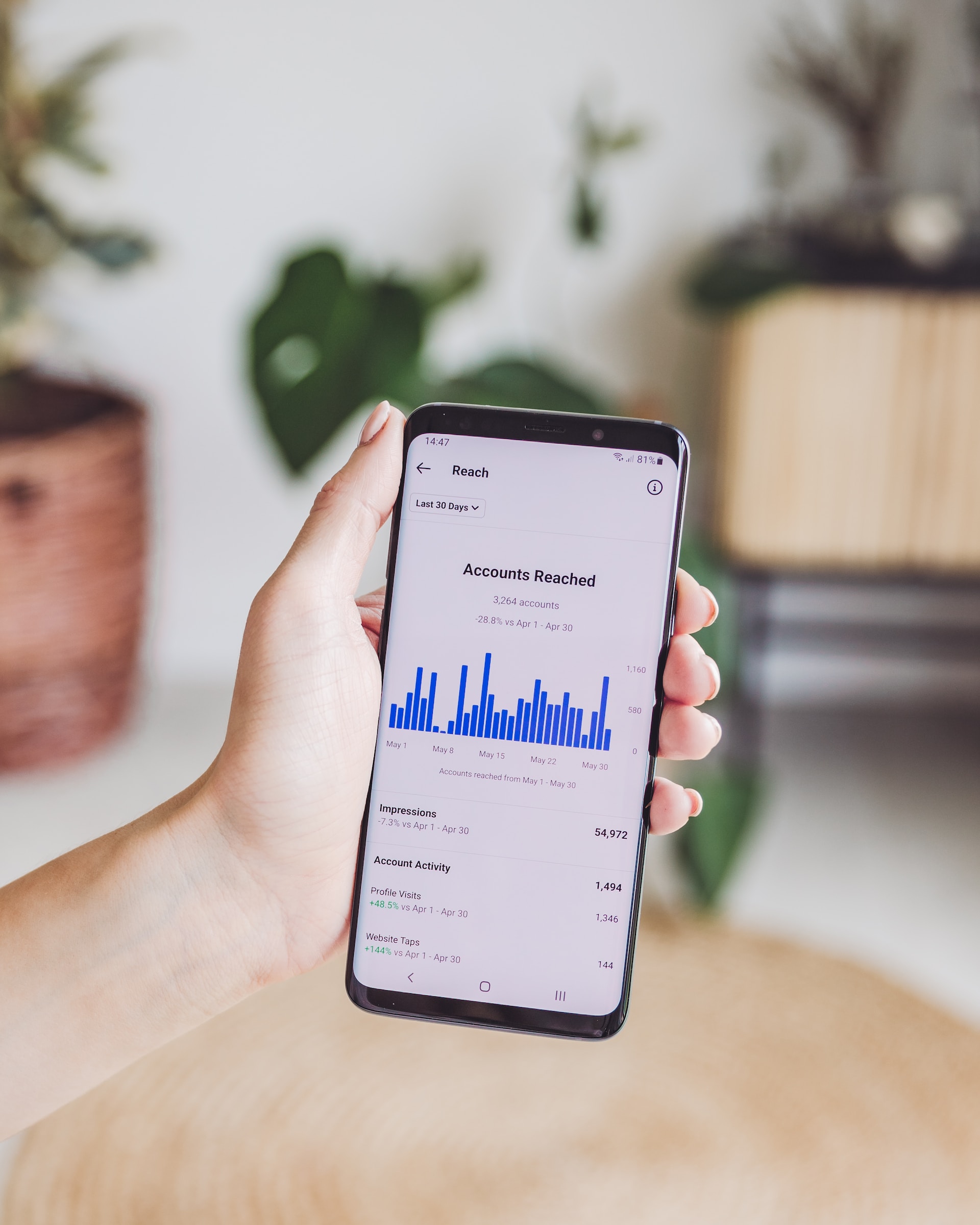
Today is where a mobile device is our trusty companion and online experiences shape our decisions. In this brave new world, real estate websites stand at a crossroads of opportunity and challenge. Gone are the days when house hunters flipped through heavy brochures; today, they're swiping and tapping their way through optimized mobile sites.
In this article, we're delving into a topic that's not just a trend but a necessity: the necessity of mobile optimization for real estate websites. From user expectations to search engine visibility, we'll uncover the facets that make mobile optimization an unskippable chapter in your digital success story. So, buckle up as we embark on a journey to unveil why your real estate website's mobile site optimization isn't just a choice, but a strategic move you can't afford to miss.
The Mobile Revolution and Its Impact on Real Estate
With the increase in mobile usage and the prevalence of web mobile optimization, the landscape has transformed dramatically, redefining the way properties are discovered, evaluated, and ultimately purchased or rented.
Mobile phones, optimized for mobile site use, have become pocket-sized gateways to a world of information, and real estate is no exception. Internet users have embraced the convenience of exploring properties on their mobile devices, allowing them to delve into listings while on the go, during lunch breaks, or even while commuting. This shift in consumer behavior, aligned with mobile optimization best practices, has compelled the real estate industry to adapt or risk falling behind with their device optimization.
The impact of this mobile revolution, guided by a robust mobile optimization strategy, on the real estate sector, is undeniable. The accessibility and immediacy offered by smartphones and websites being mobile optimized have reshaped buyers' expectations. They demand instant access to property details, high-quality images, and virtual tours – all conveniently delivered within the palm of their hands.
For real estate professionals, this means that a potential client's first impression of a property is often shaped through the lens of their smartphone screen. As the real estate world evolves, keeping up with mobile optimization tips and implementing a device optimization approach becomes critical to staying competitive and providing a top-notch mobile web experience.
How to Stay Relevant
To remain competitive and capture the attention of this digitally empowered audience, real estate businesses must embrace mobile optimization. Ensuring that property listings and website content are flawlessly accessible and visually appealing on mobile devices isn't just a suggestion – it's a strategic necessity. Without it, businesses risk losing out on a substantial portion of potential buyers who demand a seamless mobile experience.
Embrace the mobile revolution and seize the opportunities it brings for your real estate business. At ArdorSEO, we specialize in crafting digital marketing strategies that encompass search engine optimization (SEO), ensuring your website and property listings are not only mobile-friendly but also optimized for search engines. Elevate your online presence and reach prospective clients where they spend most of their time – on their mobile devices. Contact ArdorSEO today to optimize for mobile and propel your real estate venture to new heights.
How to Optimize Your Mobile Website

It's not just about cramming content onto a smaller screen; it'sabout crafting an immersive and user-centric experience that leaves visitors with a lasting impression. The heart of successful mobile optimization lies in providing users with a seamless journey through your real estate website, ensuring that they can effortlessly explore listings, gather information, and engage with your offerings.
Navigating a website on a desktop might allow room for complexity, but the mobile environment demands simplicity and efficiency. A well-executed mobile user experience (UX) design focuses on decluttering the interface, offering a clean layout, and prioritizing essential elements that guide users toward their objectives. From intuitive navigation menus to strategically placed call-to-action buttons, every interaction point should be designed to lead users seamlessly through the site.
Mobile Web Optimization Best Practices
In mobile web best practices, textual content requires careful consideration. Font sizes and spacing must be optimized for mobile reading, ensuring that users don't have to zoom in or strain their eyes to absorb information. Long paragraphs can quickly become overwhelming on small screens, so breaking up content into smaller, digestible chunks is essential for maintaining engagement.
With mobile devices boasting high-resolution screens, images must be crisp and captivating. Mobile optimization doesn't just mean resizing images; it involves serving the right image size based on the user's device, thus striking a balance between visual quality and loading speed.
Speaking of speed, sluggish loading times are the arch-nemesis of positive user experiences. Mobile users are often on the move, and they expect websites to load swiftly. Mobile optimization involves compressing images, minimizing code, and utilizing browser caching to ensure that your website loads smoothly, keeping users engaged rather than frustrated.
Mobile SEO and Its Role in Real Estate Visibility

Search engines, particularly Google, have recognized the growing influence of mobile devices on user behavior. As a result, they've shifted their algorithms to prioritize a mobile-friendly website in search results. This means that even if your desktop SEO is top-notch, if you don't optimize for mobile, there will be a significant impact on your visibility on search engine result pages.
The role of mobile SEO in real estate visibility extends beyond search engine rankings. Mobile-friendly websites are more likely to attract backlinks from other reputable websites, which in turn can bolster your site's authority and credibility. A well-optimized mobile website also reduces bounce rates – when users click through to your site and then leave quickly – which indicates to search engines that your content is relevant and valuable.
Mobile SEO for real estate involves a multifaceted approach. It encompasses optimizing your website's layout for various screen sizes, ensuring fast loading times, and utilizing mobile-specific keywords that capture users' intent. Local SEO is particularly vital for real estate, as potential buyers often include location-based queries in their searches.
Responsive Images and Videos
In real estate, where first impressions can make or break a deal, optimizing the mobile site with captivating visuals plays a pivotal role in capturing the attention of potential buyers and renters. In the context of mobile optimization and what is mobile optimized, this importance is amplified even further. Mobile users demand seamless access to high-quality images and engaging videos that allow them to virtually explore properties as if they were there in person.
Responsive images and videos are the cornerstones of delivering a visually immersive experience on the optimized mobile site. Gone are the days of static, one-size-fits-all visuals that may look pixelated or disjointed on smaller screens. Responsive design ensures that your images and videos adapt effortlessly to various screen sizes, from the smallest smartphone screens to larger tablets, without compromising on quality.
Responsive images, which contribute to what is mobile optimization, are game-changers for real estate listings. Potential buyers want to see every detail of a property, from the panoramic views to the intricate interior design. Ensuring that images load quickly and display flawlessly on mobile devices is essential for keeping users engaged and preventing them from moving on to a competitor's site.
Videos, too, have become a powerful tool for showcasing properties, in line with what is mobile-optimized. A well-edited virtual tour can give potential buyers a realistic sense of a property's layout and features. However, these videos must be optimized for mobile viewing to prevent buffering and slow loading times, which can frustrate users and lead to an abrupt exit from your site.
Keeping Users Engaged with Fast Loading Speeds

When potential buyers and renters access your site from their smartphones, they're seeking instant gratification – quick access to property information, images, and details. If your website takes too long to load, you risk losing their interest and potentially their business.
Loading speeds are the unsung heroes of mobile optimization. They determine whether a user sticks around to explore your listings or decides to bounce off and explore other options. A sluggish website not only frustrates users but also sends a negative signal about your brand's professionalism and user experience.
Compressing images without compromising quality, minifying code to reduce unnecessary bulk, and using browser caching are just a few tactics that contribute to faster loading times. Mobile users expect near-instantaneous results, and anything less can lead to high bounce rates and decreased user engagement.
Navigational Simplicity and Intuitive Design
Mobile users have different expectations and behaviors compared to desktop users. They're often on the move, seeking quick access to specific information. Your real estate website's navigation must be designed with their needs in mind. This means decluttering menus, streamlining categories, and placing key information within easy reach, minimizing the need for excessive scrolling or tapping.
An intuitive design involves anticipating user behaviors and preferences. For instance, placing prominent call-to-action buttons strategically throughout your site encourages users to take action without frustration. Mobile users shouldn't have to think twice about how to find property listings, inquire about a property, or get in touch with you.
The layout of your mobile website should be tailored to accommodate touch gestures and smaller screens. Responsive design ensures that navigation menus are easily accessible, buttons are appropriately sized for tapping, and content flows smoothly without the need for zooming in or out.
When it comes to real estate, clear categorization is vital. Properties should be organized logically, allowing users to filter based on criteria such as location, price, and property type. A well-organized navigation system makes it effortless for users to narrow their options and find the properties that match their preferences.
Building Trust and Credibility

When users access your real estate website on their mobile devices and find a seamless, user-friendly experience, it sends a strong message: your business is attuned to their needs and invested in providing excellent service. A mobile-optimized site showcases your commitment to delivering valuable information and ensuring their journey is effortless, even when they're on the go.
Moreover, mobile optimization reflects a forward-thinking approach to technology and client engagement. It demonstrates that your brand isn't stagnant, but continuously adapts to the evolving digital landscape to better serve clients. This adaptability resonates with modern consumers who seek progressive and reliable partners in their real estate endeavors.
A website that's optimized for mobile use also reduces friction in the browsing process. Users won't encounter layout issues, distorted images, or broken links that erode trust in your brand. Instead, they'll experience a seamless flow of information, instilling confidence in your attention to detail and professionalism.
Future-Proofing Your Real Estate Website
As technology continues to advance, new devices with varying screen sizes and capabilities will emerge. Ensuring your real estate website is mobile-optimized equips you to seamlessly adapt to these changes. A responsive design ensures that your content looks and functions beautifully across all devices, safeguarding your user experience against obsolescence.
Furthermore, search engine algorithms are continually evolving to prioritize mobile-friendly websites. By embracing mobile optimization, you position yourself for continued visibility in search engine results, regardless of how search engines evolve over time.
Future-proofing through mobile optimization also extends to user expectations. As younger generations with mobile-centric habits become the predominant market, your ability to cater to their preferences becomes crucial. By providing a seamless mobile experience now, you're aligning your real estate brand with the future demands of your target audience.
Conclusion

As we've explored throughout this article, the mobile revolution has reshaped how buyers and renters interact with properties, placing smartphones at the forefront of property discovery and decision-making. Mobile optimization isn't a mere trend; it's a strategic imperative that directly impacts your brand's visibility, credibility, and user engagement.
From the heart of user experience on their mobile device to the intricacies of mobile SEO, responsive images, loading speeds, and intuitive navigation, every facet of mobile optimization contributes to your real estate website's success. It's not just about adapting to the present; it's about anticipating the future and staying one step ahead in a competitive market.
Ready to harness the power of mobile optimization for your real estate venture? Partner with ArdorSEO, your dedicated digital marketing agency specializing in search engine optimization. Let us guide you through the intricacies of mobile optimization, transforming your website into a captivating, efficient, and future-proof platform that captures the hearts and minds of potential buyers and renters. Elevate your online presence today and seize the opportunities that the mobile revolution presents. Contact ArdorSEO and embark on a journey toward real estate success in the palm of your audience's hands.

